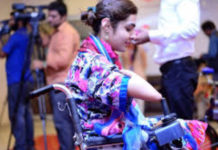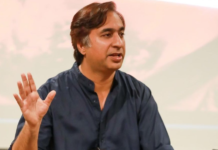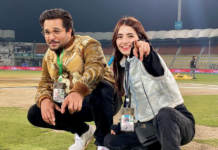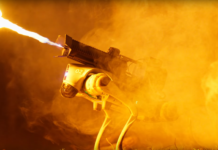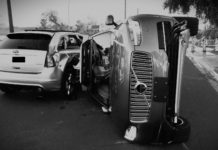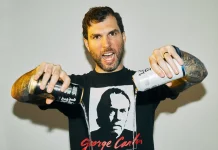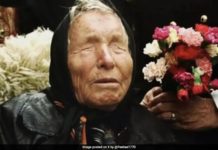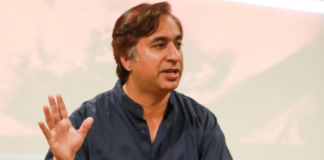A long way home – An outstanding story of a man who found his way home after 25 years though Google Earth.
An Indian boy of age 4, who lost his way on a riding train, adopted by a family and then got reunited with his biological mother after 25 years told his story in a book called “A Long Way Home” this week.
Saroo Brierley who was another Indian boy growing up in slums, got on a train accidentally while looking for his elder brother, which took him away to a 1000 miles away o Calcutta.
Alone and unable to speak the language, he couldn’t even tell where he belonged. He had to beg to survive until he was rescued by an orphanage and an Australian couple adopted him.
From then onwards, he grew up in Australia and adapted the native culture but he was unable forget about his family and homeland.
Determined to revive his past, he got on Google Earth and after spending several hours he managed to recognize his home town and track down his mother.
Their reunion in 2012 made headlines across the world, but now he has unfolded his entire story in a book, A Long Way Home, published this week.
Like many children growing up in rural India, Saroo hardly ever had sufficient food to eat and would often travel on trains to plead for scraps with his older brother.
But during one unfortunate trip he stopped for a nap at the station with his brother; when he woke up he found that he was alone. “I opened my eyes and couldn’t see my brother, but I saw a train in front of me with the door open and for some reason I thought he was on board,” he said.
“I ran over and jumped on the train just as the doors closed and pulled out of the station, and it was only then that I realised he wasn’t there. I think you could say that split-second decision changed my life forever.” He added.
When Saroo didn’t find his brother, he decided to stay on the train and hence he made his journey of 1,000 miles across the country from Khandwha, Madhya Pradesh, to Calcutta (now Kolkata).
In his autobiography, Saroo tells about his struggle to find his way back which included drowning in the River Ganges and being abducted by a man who intended to sell him as a slave.
But Saroo was rescued from the city streets and put into a juvenile home. Unable to tell where he’d come from, he was transferred to an orphanage, where he was adopted by an Australian couple.
He ended up moving to Tasmania where he started a new life and eventually earned a bachelor’s degree in business management. After that he joined his adoptive family’s engineering firm.
But he never gave up hope that he might be able to meet his family and he always regarded the mission next to impossible.
“I kept in my head the images of the town I grew up in, the streets I used to wander and the faces of my family, I treasured those memories,” he further said.
Determined, he spent years looking at maps for signs of the landmarks that he knew as a child and eventually he turned to Google Earth.
‘When I found it, I zoomed on it and bang, it just came up. I navigated it all the way from the waterfall where I used to play,’ Saroo told the BBC.
But even after he marked what he believed to be his home town, it took months for Saroo to organize a trip to test out his luck.
And when he finally did reach his old home in the town of Ganesh Talai, it was empty. “I just thought the worst, I thought perhaps everyone’s gone, my entire family has passed away,” he said.
It was then that he had another stroke of luck, as locals began to move towards him and ask him his concern.
He told them his name, and the names of his mother and siblings, and he soon found someone who was able to help.
Saroo added. “By the time the fourth person had come, they said, “Just stay here for a sec,” and within 10 minutes they came back around and they said, “Now I’m going to take you to your mother.”
He followed the person just a few yards around a corner, to where three ladies stood at the entrance to a house. One of them was his mother, Fatima.
‘I looked at the second one and I thought, ‘There’s something about you’ – and it took me a few seconds but I decrypted what she used to looked like but she walked forward, and I walked forward, and my emotions and tears and the chemical in my brain, you know, it was like a nuclear fusion ‘ he said.
Mr Brierley’s book, A Long Way Home, was published this week by Penguin Australia.




